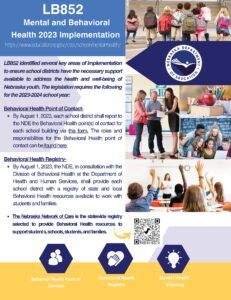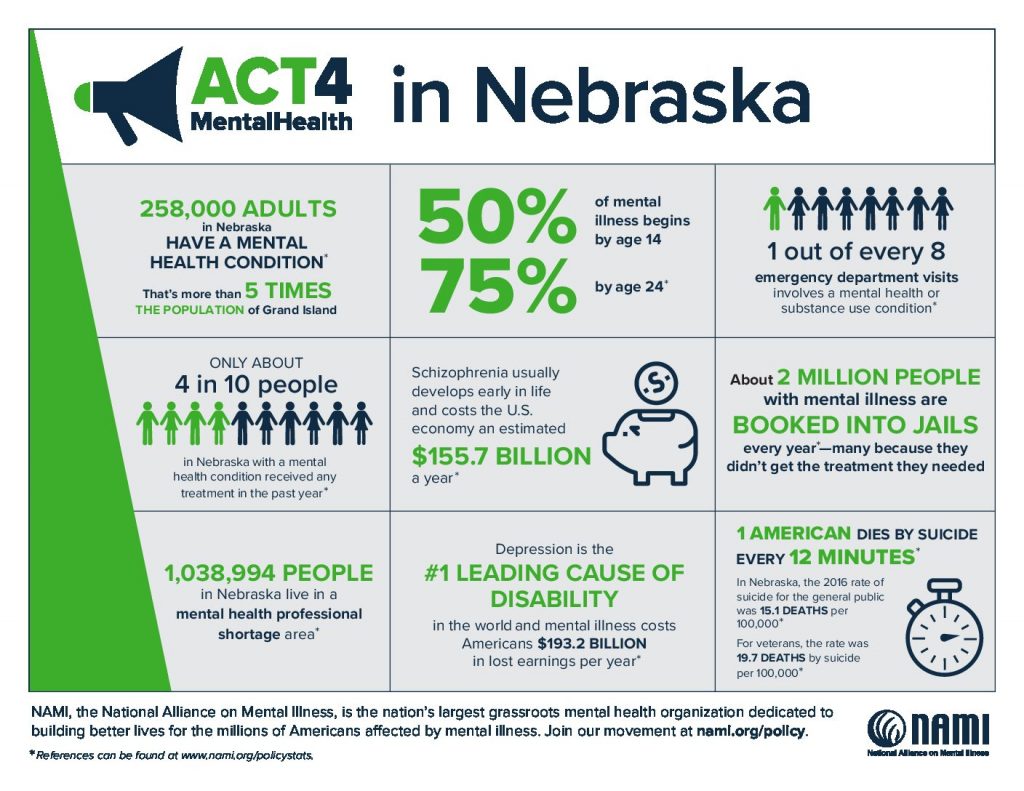School Mental Health
Mariella Resendiz Alvarado
Director-Education Partnership and Support
Cell Phone: (402) 309-0463
Email: mariella.resendiz@nebraska.gov
Amber Hartsock
Project AWARE Project Specialist
Cell Phone: (402) 309-0883
Email: amber.hartsock@nebraska.gov
Jewel Schifferns, LCSW
School Social Work Coordinator
Children’s Hospital & Medical Center
Phone: (402) 250-2744
Email: jschifferns@childrensomaha.org
Why is Mental Health Important?
Mental health is essential to our overall well-being and as important as physical health. When we feel mentally well, we can work productively, enjoy our free time, and contribute actively to our communities.
Mental health includes our emotional, psychological, and social well-being. It affects how we think, feel, and act. It also helps determine how we handle stress, relate to others, and make choices. Mental health is important at every stage of life, from childhood and adolescence through adulthood.
A mental illness is a condition that affects a person’s thinking, feeling, behavior or mood. These conditions deeply impact day-to-day living and may also affect the ability to relate to others. If you have — or think you might have — a mental illness, the first thing you must know is that you are not alone. Mental health conditions are far more common than you think, mainly because people don’t like to, or are scared to, talk about them. However:
- 1 in 5 U.S. adults experience mental illness each year
- 1 in 6 U.S. youth aged 6-17 experience a mental health disorder each year
- 50% of all lifetime mental illness begins by age 14, and 75% by age 24
None of this means that you’re broken or that you, or your family, did something “wrong.” Mental illness is no one’s fault. And for many people, recovery — including meaningful roles in social life, school and work — is possible, especially when you start treatment early and play a strong role in your own recovery process.






